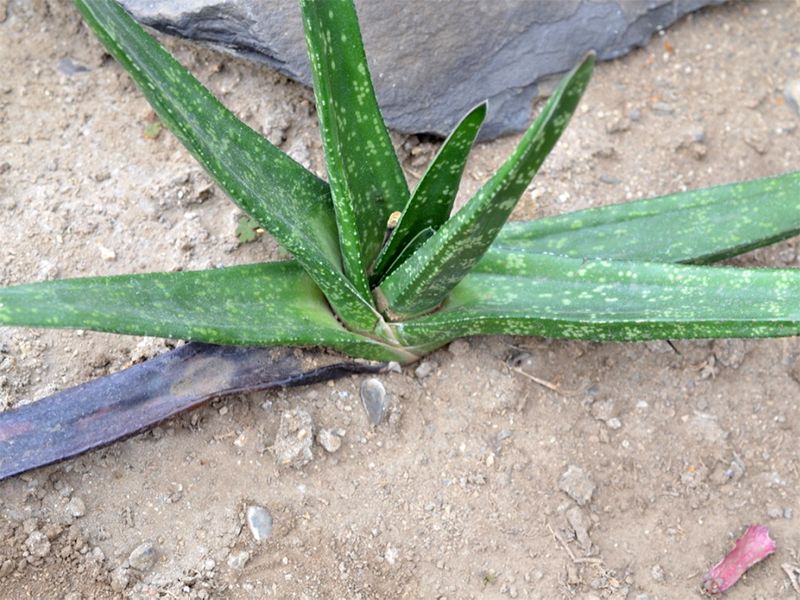
Perennials, Tropicals > Gasteria > Gasteria pillansii > Gasteria pillansii
Gasteria pillansii
Namaqua-beestong (Afr.)
Origin: South Africa.
| Family |
| Asphodelaceae |
| Genus |
| Gasteria |
| Species |
| pillansii |
| Category |
| Perennials, Tropicals |
| USDA Hardiness Zone |
| 11 |
| Canadian Hardiness Zone |
| Requires cool season protection under glass. |
| RHS Hardiness Zone |
| H1c |
| Temperature (°C) |
| 5 |
| Temperature (°F) |
| 10 |
| Height |
| 20 - 50 cm |
| Spread |
| 20 - 60 cm |
Photographs
Description and Growing Information
Flowering Period
| Landscape |
| Borders, rock gardens, containers, potted indoor or outdoor plant, within a succulent collection or arrangement or a specimen. |
| Cultivation |
| Plant in loose, well-draining cactus mix, gravelly or sandy soil in full to partial sun. Repot annually for optimal growth. |
| Shape |
| Clumping. |
| Growth |
| Fast |
| Pests |
| Leaf spot and leaf rot; mites, aphids and mealybugs may be an issue. |
| Habitat |
| Flat, quartz outcroppings. |
| Leaf Description |
| Leaf and perianth sizes vary by environment and sun exposure. Leaves broad-lanceolate, thick and fleshy; leaves measuring from 10 to 25 cm in length, 2 - 6 cm in width and 3 - 7 cm in thickness. Variegation visible in the form of small spots along the leaves. |
| Flower Description |
| Drooping lanceolate-pinnate blooms, closed and facing downward, measuring between 1 - 3 cm in length along solitary flowering stems. |
| Colour Description |
| Leaves vary in colour from bright, vivid to deep green hues, with creamy-white variegation. Flowers bloom in varying shades of orange to pinkish-orange. |
| Texture Description |
| Smooth and waxy. |
| Notable Specimens |
| Centennial Conservatory, Thunder Bay, Ontario, Canada. |
| Propagation |
| Division of offsets (pups). |
